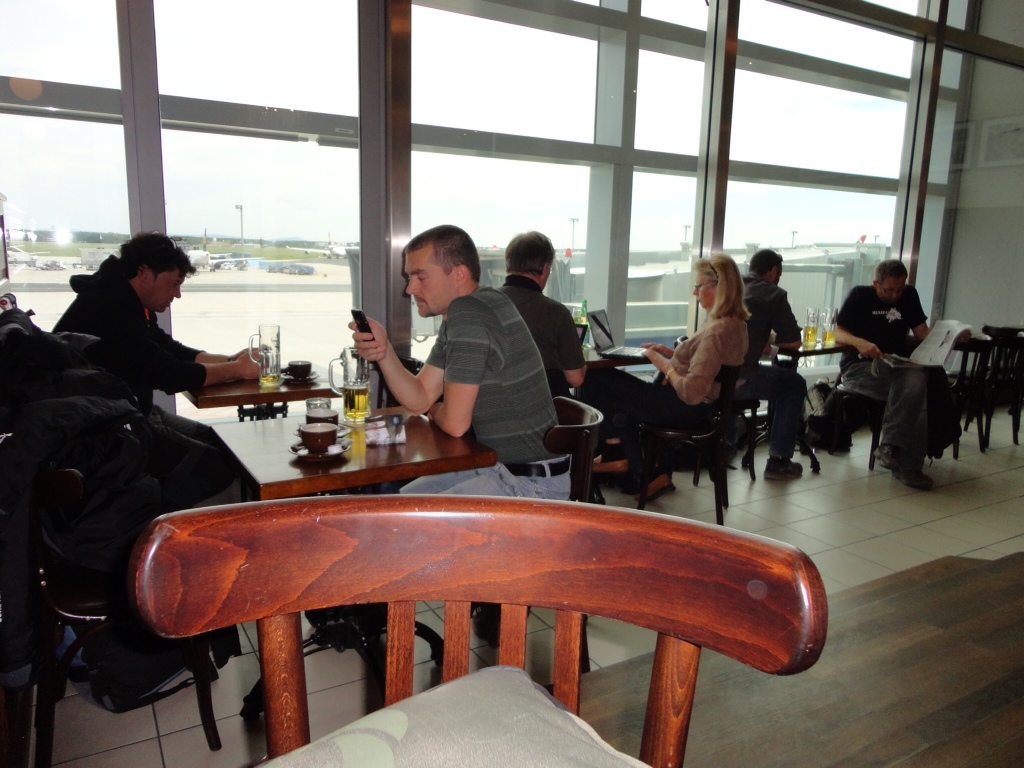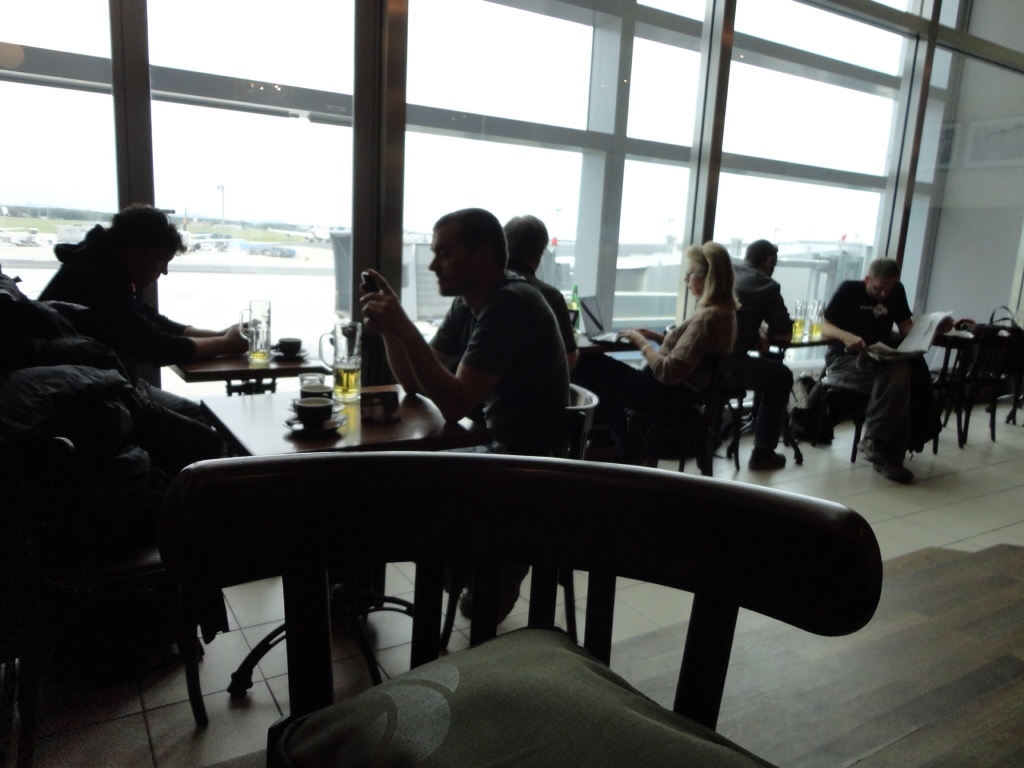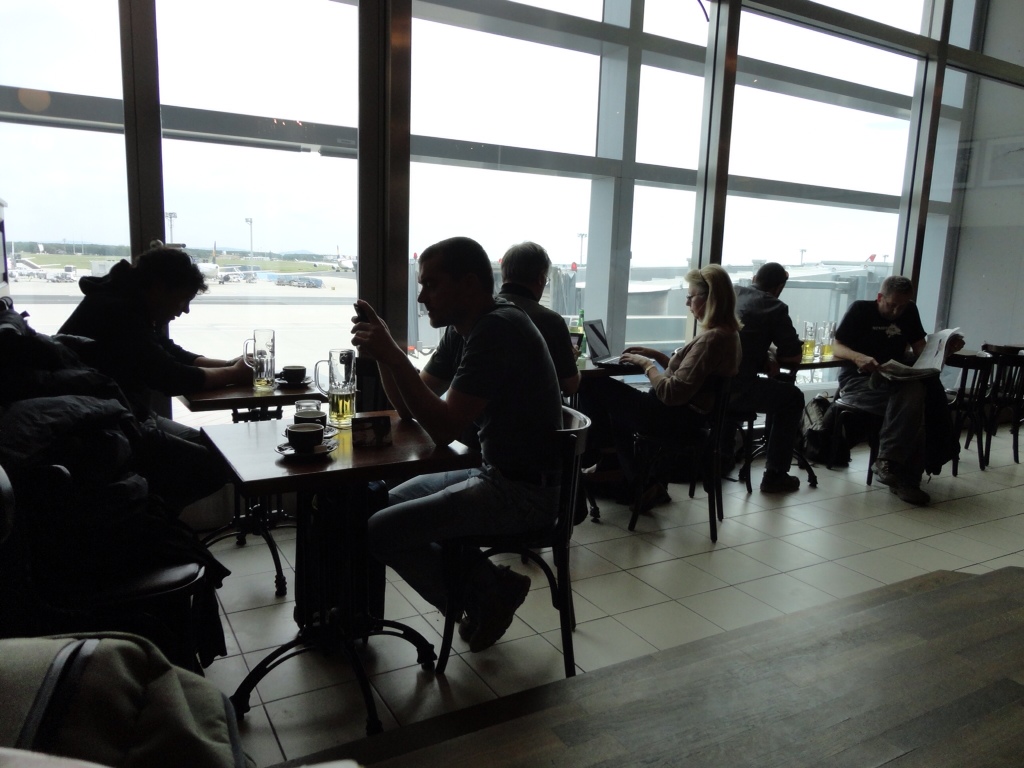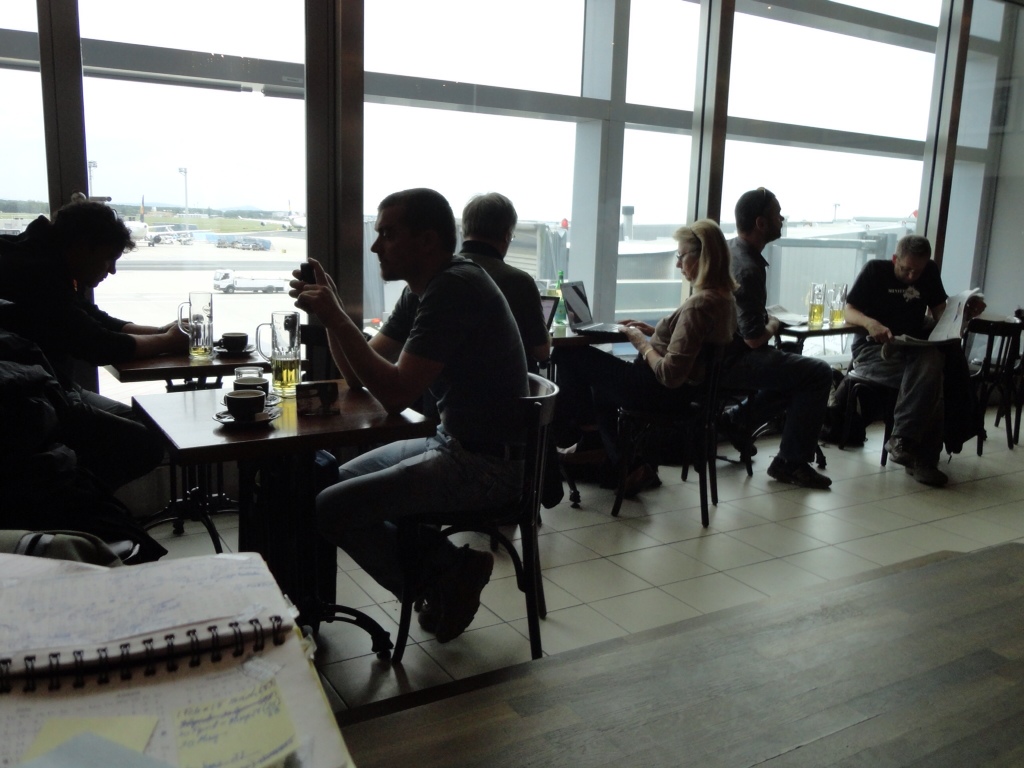But I can't hear the words they're sayin, must be the echoes in my mind.”
If yer old enough, you'll remember the great song done by Harry Nilsson. The lyrics go something like this: “everybody's talkin at me, I can't hear a word their sayin, must be the echoes in my mind.”
So much, so often, and in so many places I see people obsessed with the little boxes that they think connect them with the world.
I think the opposite. Everybody's disconnected to the people around them. Instead, they trade that off for some sort of vague connection to some other place. What happened?
Our friend Marshall McLuhan had so much to say about the way our media affects our behavior. I'm going to throw in a long passage from Wikipedia in a moment that summarizes his thought that we have to be careful about how we let/choose/decide to allow the media into our lives.
My short view is that we have failed to strike a balance between the power of the media and our own innate ability to be humans talking to each other.
First, here's a few more images from the Frankfurt airport I passed through recently. Then, if you will, there follows a summary of McLuhan's thoughts
I summarize the Wikipedia piece as follows:
we have new powers at our disposal.
The massive power and sway of telecommunications and all the other electronic forms of communication are overwhelming to most people. People will succumb to the easy fix of cheap TV, phones and whatever else might follow.
This can be good, but only if tempered with one insight: the medium is only a way to connect with other people. It has no greater good. Life is in front of each of us. The media should not stand in the way.
These photos from the Frankfurt airport show, in my view, the medium standing in the way of the message:
Understanding Media (1964)[edit]
McLuhan's most widely known work, Understanding Media: The Extensions of Man (1964), is a pioneering study in media theory. Dismayed by the way people approached and used new media such as television, McLuhan famously argued that in the modern world “we live mythically and integrally … but continue to think in the old, fragmented space and time patterns of the pre-electric age.”[52]
McLuhan proposed that media themselves, not the content they carry, should be the focus of study—popularly quoted as “the medium is the message”. McLuhan's insight was that a medium affects the society in which it plays a role not by the content delivered over the medium, but by the characteristics of the medium itself. McLuhan pointed to the light bulb as a clear demonstration of this concept. A light bulb does not have content in the way that a newspaper has articles or a television has programs, yet it is a medium that has a social effect; that is, a light bulb enables people to create spaces during nighttime that would otherwise be enveloped by darkness. He describes the light bulb as a medium without any content. McLuhan states that “a light bulb creates an environment by its mere presence.”[53] More controversially, he postulated that content had little effect on society—in other words, it did not matter if television broadcasts children's shows or violent programming, to illustrate one example—the effect of television on society would be identical.[54]He noted that all media have characteristics that engage the viewer in different ways; for instance, a passage in a book could be reread at will, but a movie had to be screened again in its entirety to study any individual part of it.




